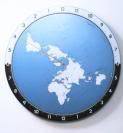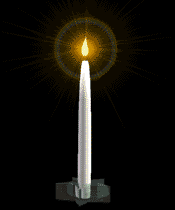 Time – the sequential arrangement of all events.
Time – the sequential arrangement of all events.Take a moment to consider that definition. The sequential arrangement of all events. Everything realized and unrealized. Every action, reaction and non-action that has taken place, is taking place, or ever will take place. Time exists only as a concept devised by mankind, to serve mankind. It’s a tool much like a yardstick, created to help us communicate more easily.
 The World Clock lists time zones for every segment of real estate in the world from Abu Dhabi to Zurich. Zones that further arrange events into neat little sectors.
The World Clock lists time zones for every segment of real estate in the world from Abu Dhabi to Zurich. Zones that further arrange events into neat little sectors. The U.S. Naval Observatory keeps the “Master Clock Time” (a true misnomer – you’ll read why later in this column) which can be found here. Ah, the Navy loves the pomp and circumstance of maintaining the Master Clock. To me that’s like parading around and boasting that your yardstick is the best one in the world…
 Another site claims the honor of keeping the official Time Ticker. You can scroll across their page and see what time it is anywhere in the world. Or you can take a virtual walk through the evolution of timekeeping through the ages here. There’s even a game where you can “shuffle” time here.
Another site claims the honor of keeping the official Time Ticker. You can scroll across their page and see what time it is anywhere in the world. Or you can take a virtual walk through the evolution of timekeeping through the ages here. There’s even a game where you can “shuffle” time here.  Everyone’s familiar with the sundial, that most primitive tool to mark the sun’s progress. But because each society measured time in a way practical to their lifestyle, it shouldn’t surprise you to learn that Chinese time (Chinese society was basically agricultural) was measured in a temporal system based on sunrise and sunset. Day and the night were each divided into six equal periods. This obviously made the periods unequal because of seasonal changes: As winter approaches, the "day periods" became shorter while during the summer they became longer. To make things even more complicated, in practical use night was actually divided into five "special" night periods instead of the theoretical six; and each night period was in turn divided into five "points" equally. (For more on Chinese Temporal Timekeeping System, click here.
Everyone’s familiar with the sundial, that most primitive tool to mark the sun’s progress. But because each society measured time in a way practical to their lifestyle, it shouldn’t surprise you to learn that Chinese time (Chinese society was basically agricultural) was measured in a temporal system based on sunrise and sunset. Day and the night were each divided into six equal periods. This obviously made the periods unequal because of seasonal changes: As winter approaches, the "day periods" became shorter while during the summer they became longer. To make things even more complicated, in practical use night was actually divided into five "special" night periods instead of the theoretical six; and each night period was in turn divided into five "points" equally. (For more on Chinese Temporal Timekeeping System, click here. Ancient cultures marked the passage of the summer and winter solstice and spring and autumn equinox. Two universally well-known monoliths dedicated to keeping time are located at Stonehenge and Easter Island. There’s even a site where you can purchase a Stonehenge pocket watch if you’re so inclined.
Ancient cultures marked the passage of the summer and winter solstice and spring and autumn equinox. Two universally well-known monoliths dedicated to keeping time are located at Stonehenge and Easter Island. There’s even a site where you can purchase a Stonehenge pocket watch if you’re so inclined.Most of us think we understand time. Time is what clocks measure, ticking off the steady beat of seconds, minutes and hours. Although our wristwatches may run fast or slow because of mechanical flaws, we believe that there is some "master clock" for the universe to which, in an ideal world, all clocks could be synchronized. The notion of the regular passage of time is so ingrained in human consciousness that our languages have developed special ways to distinguish events that occur in the past, present or future. And until Einstein, most physicists also accepted the idea of universal time without question.
 Einstein proved that Time does not progress at the same rate for everyone, everywhere. Instead, Einstein showed that how fast time progresses depends on how fast the clock measuring time is moving. The faster an object travels, the more slowly time passes for that object, as measured by a stationary observer. Perhaps even more astonishing, one person's past could theoretically be another's future—which is why Einstein described the past, present and future as "persistent illusions."
Einstein proved that Time does not progress at the same rate for everyone, everywhere. Instead, Einstein showed that how fast time progresses depends on how fast the clock measuring time is moving. The faster an object travels, the more slowly time passes for that object, as measured by a stationary observer. Perhaps even more astonishing, one person's past could theoretically be another's future—which is why Einstein described the past, present and future as "persistent illusions."For more on this very elementary yet seemingly counter-intuitive concept, check out the interesting article by the American Museum of Natural History here.
 Once you understand that time doesn’t progress at the same rate for everyone everywhere, your mind will be opened to endless possibilities.
Once you understand that time doesn’t progress at the same rate for everyone everywhere, your mind will be opened to endless possibilities. Explore the limitless possibilities introduced by the new month’s fresh meat at The Horror Library.
 For a sweet dessert, be sure and read The Sugar Blues. Let me know what you think; I know you have the time…. ~~ Clara Chandler
For a sweet dessert, be sure and read The Sugar Blues. Let me know what you think; I know you have the time…. ~~ Clara Chandler

No comments:
Post a Comment